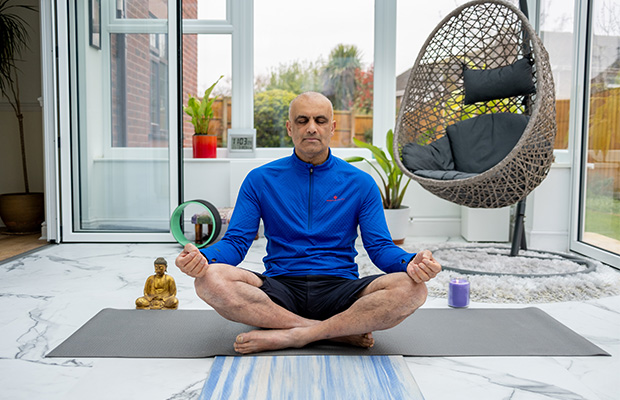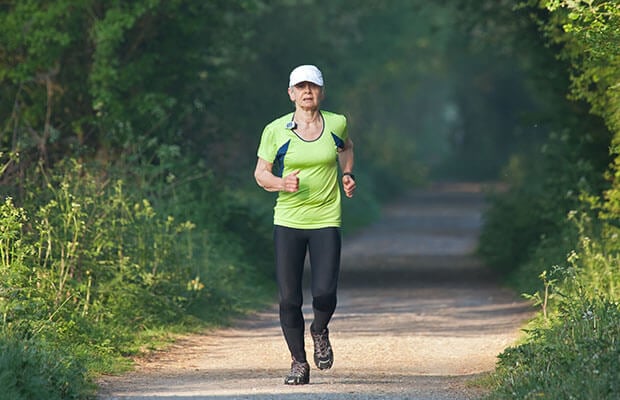"I’ve always been concerned about my heart because when I was 19 my father died from a heart attack. He was just 49.
But because I was not born in this country, I do not know my family’s full medical history. I just know a lot of people in our family in India and Pakistan have died of heart attacks at a young age. I think that’s why I was always super fit and healthy – running, cycling, playing football and practising yoga.
Then about eight years ago, I fainted after a half marathon and that the first sign something may be wrong with my heart. About a year after that I went for a health check at the GP's and the nurse noticed that my heartbeat was not quite right. The doctor did some tests and found out I had atrial fibrillation. I was totally shocked.
Want to get fit and healthy?
Sign up to our fortnightly Heart Matters newsletter to receive healthy recipes, new activity ideas, and expert tips for managing your health. Joining is free and takes two minutes.
I’d like to sign-up
After being diagnosed with atrial fibrillation, I carried on exercising. But my atrial fibrillation got worse, and I got more and more tired. I was referred to a specialist and they said I also had hypertrophic cardiomyopathy and needed a cardioversion. I had three. But they did not last, I always went back into atrial fibrillation.
So, in April 2021, I had a Maze Cox IV procedure – where they cut the heart muscle to create a maze of scar tissue that blocks the abnormal heartbeat signals, allowing the normal signals to work.
Nearly 90 per cent of my lifestyle is back to what it used to be. I know what triggers my atrial fibrillation. If I go for a long walk, I’m okay. But going uphill and downhill causes problems because of the stopping and starting.
It’s important to keep exercising. I do not push myself too much, but I will go for a brisk walk, or cycle somewhere. I avoid taking the car if I can. If it’s a short journey, I’ll always walk. I also try and put an exercise into my normal daily routine. I take my stuff in a backpack to work, jog to the train station, and when I get to work on the other side, I jog to my office.
I love yoga. I’ve been practising it for more than 20 years, and teaching for more than 10, so well before my atrial fibrillation diagnosis. Having a healthy heart became even more important after that, and my medical team encouraged me to carry on with yoga.

Yoga has really helped me to cope with my atrial fibrillation. Yoga naturally slows things down – it slows your breathing and heart rate, and helps with relaxation, making you feel less anxious and stressed.
I’ve also changed my diet. I eat much healthier food now. I do not have any ultra processed food. As a family, we do not touch it at all, we have lots of fresh foods – greens, fruits, fish – and we’ve cut down a lot on red meat.”
What to read next...








